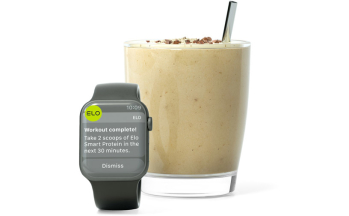Can too much exercise cause weight gain?
Exercise offers many health benefits, including better sleep, improved mood, reduced risk of chronic illness, and weight management. However, you can have too much of a good thing. Excessive exercise may hinder weight loss or even lead to weight gain. Here’s what science has to say about the correlation between overtraining and the number on the scale.

While exercise can offer a wide range of health benefits, it can be easy to overdo it. If you find that you are extremely fatigued, stressed out, and have gained weight, then you may be experiencing signs of overtraining.
Otherwise known as overtraining syndrome, too much exercise can have serious consequences that can negatively affect your health and cause a decline in performance. But how does this lead to weight gain, and what are some signs of overtraining syndrome? Let’s first discuss the recommended amount of exercise and how you can know if you’re exercising too much.

Exercise recommendations
The Department of Health and Human Services recommends at least 30 minutes of moderate physical activity/day, 150 minutes of moderate aerobic activity/week or 75 minutes of vigorous exercise/week for improved health and wellness [ 1 2
Before embarking on a new exercise routine, it’s recommended to see a healthcare provider first.
How much exercise is too much?
Exercise has many health benefits, including a reduced risk of chronic diseases, improved blood pressure, and enhanced coordination. However, you can have too much of a good thing.
Research has shown that exercising too frequently or too intensely can have a negative effect on the body and lead to pulled muscles, mood swings, overuse injuries, fatigue, and even a decline in performance [ 3 4 6 4 5
Here are some signs of overtraining:
Overuse injuries
Excessive fatigue
Takes longer to recover after a workout
Extreme soreness
Decline in performance
Workouts feel more challenging
Poor sleep quality
Lack of energy, decreased motivation, or moodiness
Increased blood pressure
Irregular menstrual cycles

How overtraining can cause weight gain
If you’re over-exercising and wondering why you’re gaining weight, there are a few causes which could be to blame. Here are some ways that overtraining syndrome can affect the number on the scale.
Dietary choices.
Regardless of how much you’re exercising, you could still gain weight depending on what (and how much) you’re eating. Science has shown that intense fatigue, increased hunger, and even food cravings (especially for sweets) are signs of overtraining, all of which can lead to weight gain [ 5
Sleep quality.
Exercise is generally beneficial for sleep, however, training too much without adequate recovery can actually have the opposite effects. Research suggests that increased training load can lead to reduced sleep quality due to elevated levels of the stress hormone, cortisol [ 6
Poor sleep can also lead to disruptions in glucose utilization and storage, insulin sensitivity, and/or lipid metabolism, all of which negatively impact weight [ 7 8 9
If you’re looking to improve your sleep habits, here are some science-backed tips to
achieve good sleep hygiene
.
Stress and hormonal changes.
While occasional stress is normal, chronic stress can significantly affect your health and even impact your weight, both by thwarting weight loss and promoting unwanted weight gain.
In high-stress situations, your body releases adrenaline, cortisol, and glucose as part of a “fight-or-flight” response [ 10 11 12
Inflammation.
Research has found that athletes who experience overtraining syndrome have elevated levels of C-reactive protein (CRP), an inflammatory marker [ 13 14 14
How to avoid overtraining syndrome
If you feel that you are experiencing signs of overtraining (or you just want to avoid it altogether), here are a few suggestions to help you out.
Listen to your body. If you’re feeling extra sore or burned out, don’t push yourself. Take a few extra days off to stretch, go on a walk, or do some light yoga.
Get a massage. A professional masseuse will help relax your muscles, relieve tension, and prevent injury.
Schedule rest days. It can be easy to overdo it if you don’t plan to rest. Plan this into your training schedule to help avoid burnout.
Fuel your body. Focus on eating a well-balanced diet with enough calories, carbohydrates, protein, healthy fats, and antioxidants to sustain your workouts.
Focus on recovery nutrition. Adequate nutrition (and hydration) is essential for performance, recovery, and training progression. From protein and carbs to fat and hydration, here’s everything you need to know about
optimizing your performance through personalized nutrition
.Periodize workouts. To avoid overtraining, try varying your workouts between light and hard days. This will help optimize performance and allow you to make necessary variable adjustments in your training.
Summary
Exercise offers many health benefits, including better sleep, improved mood, reduced risk of chronic illness, and weight management. However, too much can lead to overtraining syndrome and have a variety of deleterious effects including weight gain, poor sleep quality, immune system suppression, injuries, and increased hunger. You can reverse the effects of overtraining (or avoid it altogether) by getting enough rest, periodizing your workouts, optimizing nutrition before, during and after a workout, and engaging in other recovery strategies.
Disclaimer: The text, images, videos, and other media on this page are provided for informational purposes only and are not intended to treat, diagnose, or replace personalized medical care.
Key Takeaways
Research suggests that exercising too frequently or too intensely can have a negative effect on the body and lead to pulled muscles, mood swings, overuse injuries, fatigue, weight gain, and even a decline in performance [
3
,4
].Intense fatigue, increased hunger, and even food cravings (especially for sweets) are a few signs of overtraining, all of which can lead to weight gain [
5
].Research suggests that decreased sleep quality may be a direct result of increased training load due to elevated levels of the stress hormone, cortisol [
6
].While occasional stress is normal, chronic stress can significantly affect your health and even impact your weight, both by thwarting weight loss and promoting unwanted weight gain.
You can reverse the effects of overtraining (or avoid it altogether) by getting enough rest and allowing your body to fully recover from exercise.
References:
Edward R. Laskowski, M. D. (2021, September 22). How much exercise do you really need? Mayo Clinic. Retrieved January 11, 2022, from
https://www.mayoclinic.org/healthy-lifestyle/fitness/expert-answers/exercise/faq-20057916
Donnelly, J. E., Blair, S. N., Jakicic, J. M., Manore, M. M., Rankin, J. W., Smith, B. K., & American College of Sports Medicine (2009). American College of Sports Medicine Position Stand. Appropriate physical activity intervention strategies for weight loss and prevention of weight regain for adults. Medicine and science in sports and exercise, 41(2), 459–471.
https://doi.org/10.1249/MSS.0b013e3181949333
U.S. National Library of Medicine. (n.d.). Are you getting too much exercise?: Medlineplus medical encyclopedia. MedlinePlus. Retrieved January 11, 2022, from
https://medlineplus.gov/ency/patientinstructions/000807.htm
Sports medicine. Rady Children's Hospital-San Diego. (n.d.). Retrieved January 11, 2022, from
https://www.rchsd.org/programs-services/sports-medicine/conditions-treated/overtraining-syndromeburnout/
Overtraining: What it is, symptoms, and recovery. Hospital for Special Surgery. (n.d.). Retrieved January 11, 2022, from
https://www.hss.edu/article_overtraining.asp
Kreher J. B. (2016). Diagnosis and prevention of overtraining syndrome: an opinion on education strategies. Open access journal of sports medicine, 7, 115–122.
https://doi.org/10.2147/OAJSM.S91657
Depner, C. M., Stothard, E. R., & Wright, K. P. (2014). Metabolic consequences of sleep and circadian disorders. Current Diabetes Reports, 14(7).
https://doi.org/10.1007/s11892-014-0507-z
Sharma, S., & Kavuru, M. (2010). Sleep and metabolism: an overview. International journal of endocrinology, 2010, 270832.
https://doi.org/10.1155/2010/270832
Broussard, J. L., Kilkus, J. M., Delebecque, F., Abraham, V., Day, A., Whitmore, H. R., & Tasali, E. (2015). Elevated ghrelin predicts food intake during experimental sleep restriction. Obesity, 24(1), 132–138.
https://doi.org/10.1002/oby.21321
Mifsud, S., Schembri, E. L., & Gruppetta, M. (2018). Stress-induced hyperglycaemia. British Journal of Hospital Medicine, 79(11), 634–639.
https://doi.org/10.12968/hmed.2018.79.11.634
Lee, D. Y., Kim, E., & Choi, M. H. (2015). Technical and clinical aspects of cortisol as a biochemical marker of chronic stress. BMB Reports, 48(4), 209–216.
https://doi.org/10.5483/bmbrep.2015.48.4.275
Nicoll, J. X., Hatfield, D. L., Melanson, K. J., & Nasin, C. S. (2018). Thyroid hormones and commonly cited symptoms of overtraining in collegiate female endurance runners. European journal of applied physiology, 118(1), 65–73.
https://doi.org/10.1007/s00421-017-3723-9
Tuomisto, K., Jousilahti, P., Havulinna, A. S., Borodulin, K., Männistö, S., & Salomaa, V. (2019). Role of inflammation markers in the prediction of weight gain and development of obesity in adults – a prospective study. Metabolism Open, 3, 100016.
https://doi.org/10.1016/j.metop.2019.100016
Zembron-Lacny, A., Tylutka, A., Zeromska, A., Kasperska, A., & Wolny-Rokicka, E. (2019). Does High Volume of Exercise Training Increase Aseptic Vascular Inflammation in Male Athletes?. American journal of men's health, 13(3), 1557988319858838.
https://doi.org/10.1177/1557988319858838







